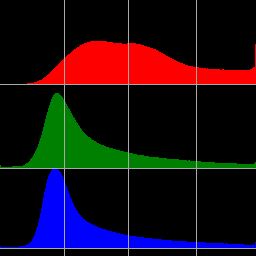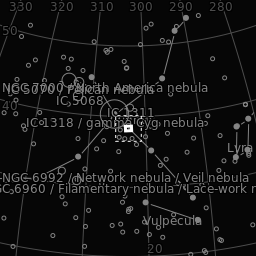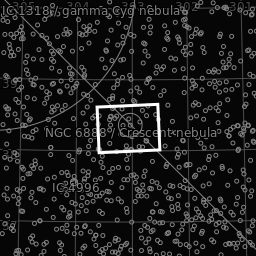The Crescent Nebula (also known as NGC 6888, Caldwell 27, Sharpless 105) is an emission nebula in the constellation Cygnus, about 5000 light-years away from Earth. It was discovered by Friedrich Wilhelm Herschel in 1792. It is formed by the fast stellar wind from the Wolf-Rayet star WR 136 (HD 192163) colliding with and energizing the slower moving wind ejected by the star when it became a red giant around 250,000 to 400,000 years ago. The result of the collision is a shell and two shock waves, one moving outward and one moving inward. The inward moving shock wave heats the stellar wind to X-ray-emitting temperatures. [Wiki]
Data source Davide Coverta |
|
|
| Optic |
RC8 f/6 |
| Camera |
QSI 683 WS |
| Filters |
Astrodon Ha L, R, G, B |
| Mount |
NEQ6 with EQASCOM
|
Guide
|
OAG with Lodestar
|
Frame center
|
RA 20:12:16 DEC 38:18:54 J2000
|
Date
|
30th July 2018
|
Site
|
Astrobioparco di Felizzano, AL, Italy
|
| Exposures
|
Ha - 22x1200s @-15C bin 1x1
L 22x900s bin 1x1
R 6x600s bin 2x2
G 6x600s bin 2x2
B 6x600s bin 2x2
Integration time - 15h50m
|
|



|
|



